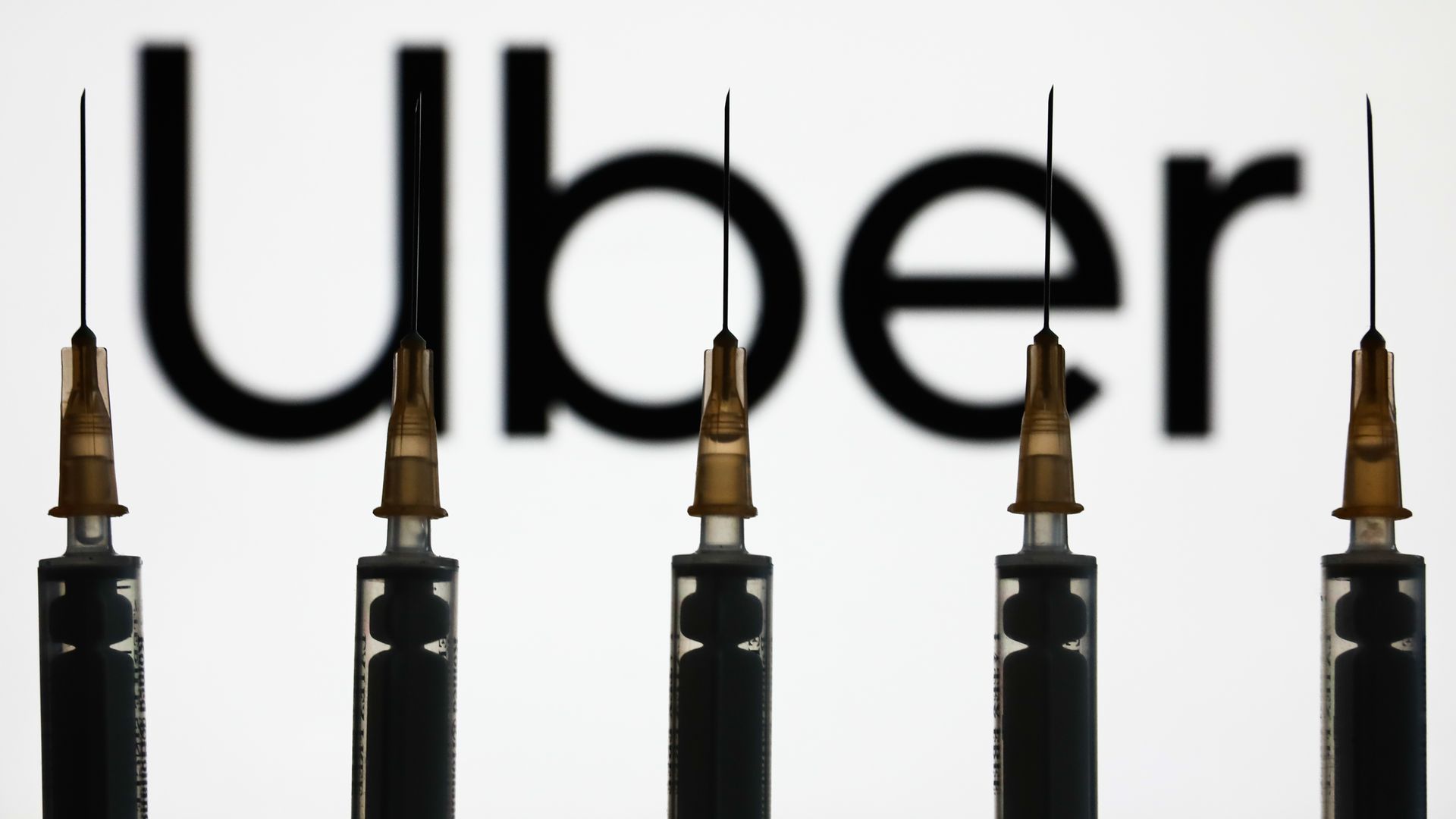Uber plans "one-stop shop" for health logistics
Add Axios as your preferred source to
see more of our stories on Google.

Photo illustration by Jakub Porzycki/NurPhoto via Getty Images.
In news that will surprise those that didn't know Uber Health was a thing, the company recently picked up Michael Cantor as its first chief medical officer.
Why it matters: Uber made its name shuttling people from bars and restaurants, but the company sees a future in connecting parts of the health care ecosystem.
- The new appointment underscores the company’s commitment to investing in the health care sector.
- Industry observers tell Axios it could signal an interest in expanding beyond simple ride-hailing logistics to supporting clinical trials or facilitating hybrid care.
Context: Uber Health launched in 2018 to help clinics and hospitals ferry their patients to and from appointments.
- Last spring, Uber named Caitlin Donovan head of health after Dan Trigub departed to start MedArrive, his own health tech company.
- Both Uber and Lyft have significant health divisions and longstanding investments in non-emergency medical transit (NEMT), and more recent focus areas include COVID-19 vaccination and prescription delivery.
Details: Cantor was previously chief medical officer at four other digital health companies.
- He’s also a board-certified geriatrician with experience designing clinical programs for older adults and vulnerable populations.
- "What Uber has to do is figure out how to speak the language of folks in dialysis centers [and other health care environments]," Cantor tells Axios.
What they’re saying: Industry observers say Uber’s latest move could signal potential interest in opportunities to support hybrid forms of care or assist with remote studies. Plus, having a clinician on board can’t hurt when it comes to striking partnerships with health care providers.
- “Imagine new care models designed around low-cost, convenient transportation options… to do that, they need to have some medical expertise,” says Andrew Matzkin, a partner with the health consultancy firm Health Advances. “If Uber and Lyft are just logistical solutions, then you don’t need CMOs."
- The company could also be interested in facilitating certain types of care, such as home care, Lisa Suennen, a national adviser with Manatt Health who leads the Manatt Venture Fund, said.
- “That’s meeting patients where they are, and thinking about how to bring that into the clinical workflow,” Caitlin Donovan, Uber’s head of health, tells Axios.
By the numbers:
- 3,000: The number of health care customers Uber currently serves.
- 71%: The rate of increase in gross bookings for Uber’s health division between Q4 2020 and Q4 2021.
What’s next: Uber’s health leaders are also working on new ways to support clinicians and people who use Medicaid and Medicare.
- For example, the company could generate reports for clinicians “to see if people are making their appointments and why,” Cantor said.
- Uber could also help more people access the transportation benefits included in their health care plans, since it enables clinicians to order rides on their behalf and links people to their ride by text or landline phone call.
Big picture: “If we had access to services to coordinate more effectively, this is what we’d want: A one-stop shop to get transit, nutrition, prescriptions, all of those things,” Cantor said.
